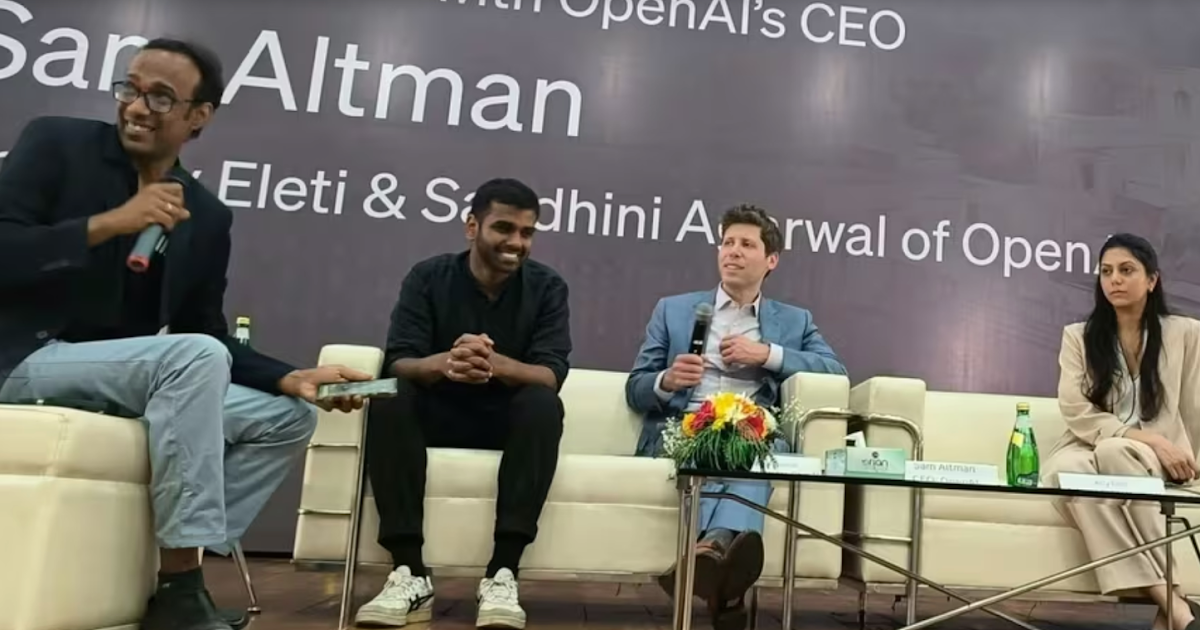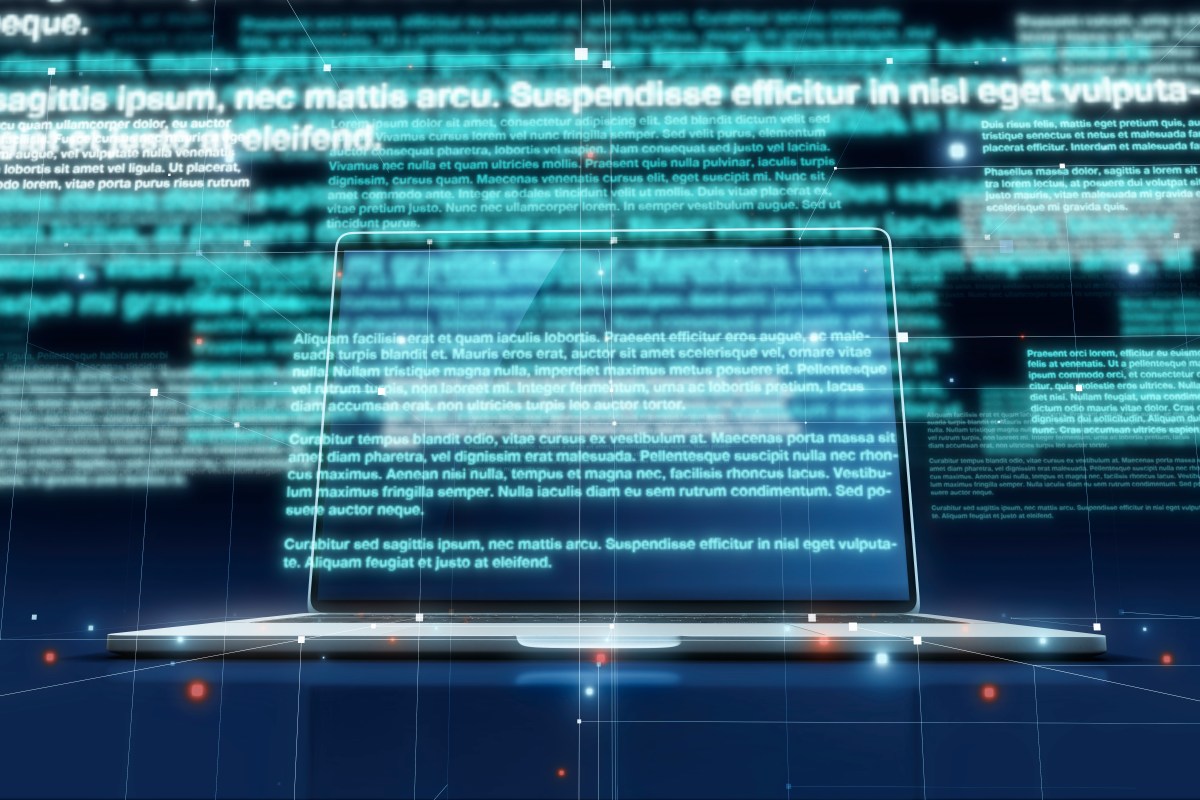Responding candidly to a question in the Indian capital New Delhi, OpenAI CEO Sam Altman said: "The way this works is we're going to tell ...

www.southasiainvestor.com
Responding candidly to a question in the Indian capital New Delhi,
OpenAI CEO Sam Altman said: "The way this works is we're going to tell you, it's totally hopeless to compete with us on training foundation models you shouldn't try, and it's your job to like try anyway. And I believe both of those things. I think it is pretty hopeless." This occurred at an event organized by The Economic Times where Altman answered a question by Rajan Anandan, a former Vice President of Google in India and South East Asia and current venture capitalist.
 |
| OpenAI CEO Sam Altman in India |
Altman in Delhi:
Sam Altman, the young CEO of OpenAI, the company that recently launched its revolutionary Generative AI app ChatGPT, was in India as part of a six-nation tour to discuss AI regulation. ChatGPT has been trained on massive amounts of data and text from the internet and academic journals. It can write computer code and carry on sophisticated conversations on a lot of different subjects. Altman is also visiting China. He was invited to speak at an event sponsored by Indian publication Economic Times. Here's the
full exchange between Anandan and Altman about the potential for an Indian AI startup:
Anandan: "Sam, we have got a very vibrant ecosystem in India but specifically focussing on AI, are there spaces where you see a startup from India building foundational (AI) models; how should we think about that. Where is it that a team from India, with three super-smart engineers having not 100, but USD 10 million each could actually build something truly substantial?"
Altman: "The way this works is, we're going to tell you. It's totally hopeless to compete with us on training foundation models. You shouldn't try, and it's your job to like trying anyway. And I believe both of those things. I think it is pretty hopeless."
Challenge Accepted:
Judging by social media responses, most Indians reacted angrily to Altman's negative remarks. They accused him of "arrogance". Others saw his statement as a challenge and responded by accepting the challenge.
Tech Mahindra CEO CP Gurnani said he accepts the challenge. “OpenAI founder Sam Altman said it's pretty hopeless for Indian companies to try and compete with them. Dear Sam Altman, from one CEO to another...CHALLENGE ACCEPTED,” tweeted Gurnani.
India's Tech Industry:
Americans like Sam Altman know that India's tech industry is made up mainly of companies that are essentially body shops. These companies like Infosys, TCS and others supply Indian H1B workers to perform routine tasks in IT operations departments of western companies. These companies' revenue, labeled India's "
IT exports", comes from the substantial cuts they keep from the wages of millions of Indian H1B workers. These workers replace higher-paid American employees. Rapid developments in AI technology are now
threatening such jobs.
In 2016, India
filed a complaint with the World Trade Organization (WTO) when the US raised visa fees to $4000 for each H1B worker visa. Indian government argued that it is discriminatory to the country under its trade agreement with the US.
Indian startups are not based on any original ideas born in India. They are essentially copies of similar e-commerce or logistics or payments startups in the western world.
Altman in China:
Altman is also
visiting China this week. “China has some of the best AI talent in the world and fundamentally, given the difficulties in solving alignment for advanced AI systems, this requires the best minds from around the world,” Altman told participants at the event hosted by the Beijing Academy of Artificial Intelligence.
Western Media:
Indians were justifiably very proud of their great scientific achievement when the India Space Agency ISRO successfully launched the nation's Mars Mission back in 2013. The New York Times, America's leading newspaper, mocked India with a cartoon depicting the country as a dhoti-wearing farmer with his cow knocking on the door of the Elite Space Club.
 |
New York Times Cartoon
| | Der Spiegel's Cartoon Comparing India and China |
|
In an article titled "
Paper Elephant", the Economist magazine talked about how India has ramped up its military spending and emerged as the world's largest arms importer. "Its military doctrine envisages fighting simultaneous land wars against Pakistan and China while retaining dominance in the Indian Ocean", the article said. It summed up the situation as follows: "India spends a fortune on defense and gets poor value for money".
After the India-Pakistan aerial combat over Kashmir,
New York Times published a story from its South Asia correspondent headlined: "After India Loses
Dogfight to Pakistan, Questions Arise About Its Military". Here are some excerpts of the report:
"Its (India's) loss of a plane last week to a country (Pakistan) whose military is about half the size and receives a quarter (a sixth according to SIPRI) of the funding is telling. ...India’s armed forces are in alarming shape....It was an inauspicious moment for a military the United States is banking on to help keep an expanding China in check".
Der Spiegel Cartoon:
In April this year, German publication
Der Spiegel published a cartoon as India surpassed
China as the world's most populous nation. The cartoon poked fun at India's lack of progress relative to its northern neighbor. It shows jubilant Indians on an old and overcrowded train – many on the roof – as it overtakes a sleek Chinese bullet train.
Spanish Newspaper Cartoon:'
In May 2022, Spanish newspaper
La Vanguardia published a story titled "La hora de la economia India" along with a cartoon showing an Indian snake charmer. Indian media reacted angrily to what they saw as a racist stereotype.
US Disrespects India:
Notwithstanding the
geopolitically-motivated public rhetoric of US presidents and other western leaders, the fact is that they do not respect India. "One hard truth that Indians have to contend with is that America has also had difficulty treating India with
respect", writes former Singaporean diplomat Kishore Mahbubani in his latest book "Has China Won?". "If America wants to develop a close long-term relationship with
India over the long run, it needs to confront the deep roots of its relative lack of respect for India", adds Ambassador Mahbubani. It's not just Mahbubani who suspects the United States leadership does not respect India. Others, including former President Bill Clinton, ex US President Donald Trump, former Secretary of State Hillary Clinton and CNN GPS host Fareed Zakaria have expressed similar sentiments.
Trump and Clinton:
There is some evidence to support Ambassador Mahbubani's assertion about America's lack of respect for India. For example, ex US President Bill Clinton said in 1990s that India has a
Rodney Dangerfield problem: It can’t get no respect, according to his deputy secretary of state Strobe Talbott. In a diplomatic cable released by WikiLeaks in 2010, Hillary Clinton referred to India as "a self-appointed frontrunner for a permanent UN security council seat."
More recently, US President Donald Trump mocked Indian Prime Minister
Narendra Modi about Indian contribution to Afghanistan. Trump said he got along very well with Prime Minister Narendra Modi, but the Indian leader was "constantly telling me he built a library in Afghanistan". "That's like five hours of what we spend... And we are supposed to say, 'oh, thank you for the library'. I don't know who is using it in Afghanistan," Trump said.
Related Links:
Haq's Musings
South Asia Investor Review
Higher Education Enrollment in Pakistan
Top Indian Analyst Dispels Modi's Size Illusion
Why Does India Lag So Far Behind China?
Modi's "Make in India" Hype
Digital Pakistan 2022
2021: A Banner Year for Pakistani Startup Funding
India's IT Exports Highly Exaggerated
Unemployment Crisis in India
Afiniti: Pakistani-American AI Startup
Over A Million Pakistani University Students Enrolled in STEM Fields
Pakistani Military Launches Defense AI Program
Riaz Haq Youtube Channel
PakAlumni Social Network
Responding candidly to a question in the Indian capital New Delhi, OpenAI CEO Sam Altman said: "The way this works is we're going to tell ...

www.southasiainvestor.com


www.southasiainvestor.com

www.southasiainvestor.com











